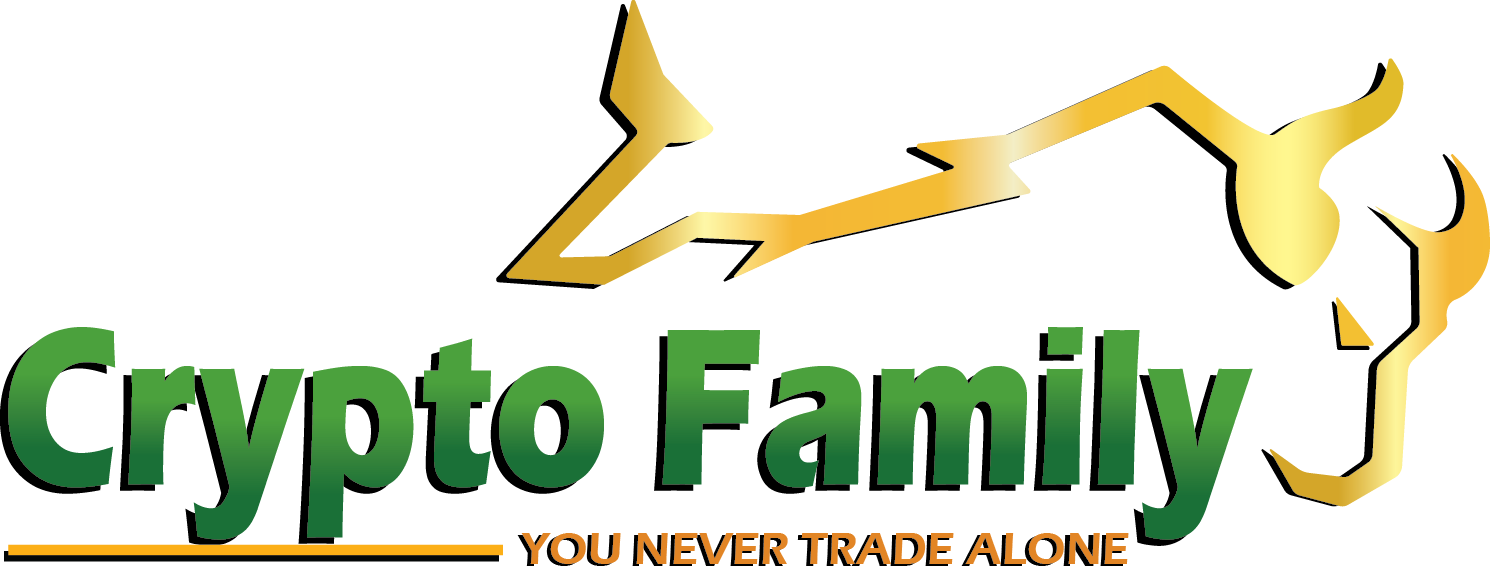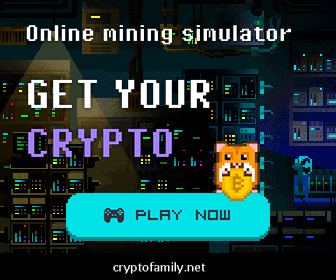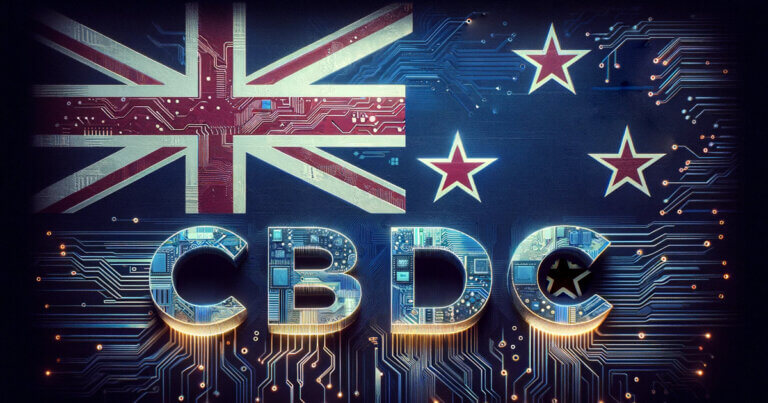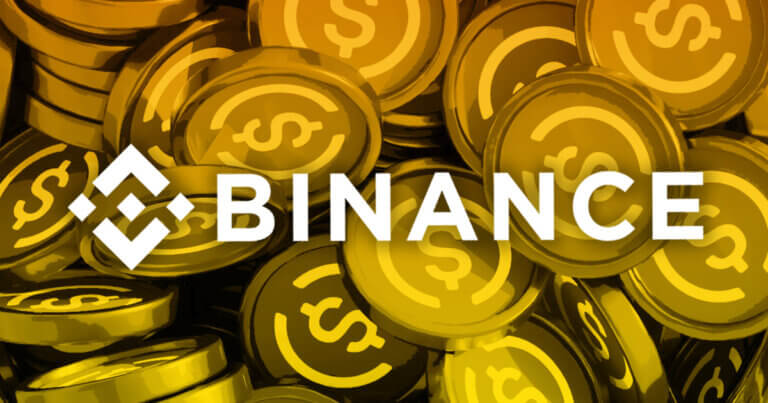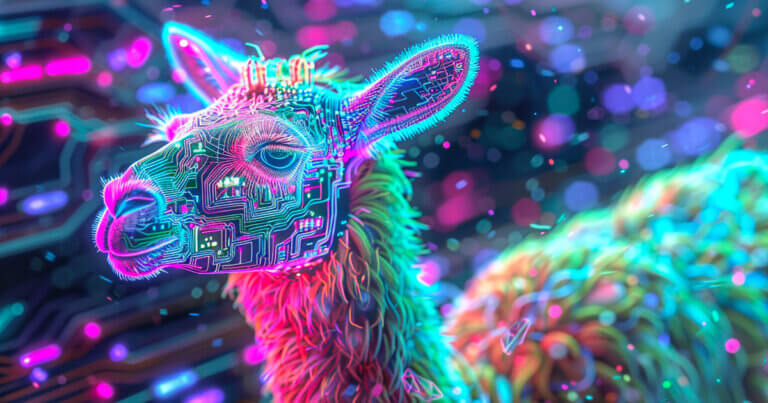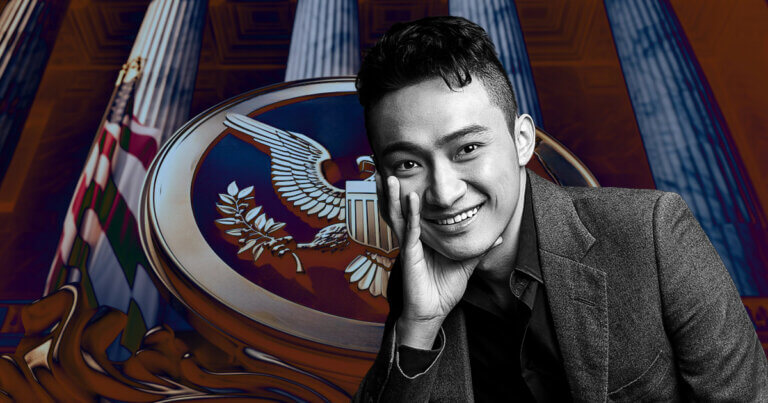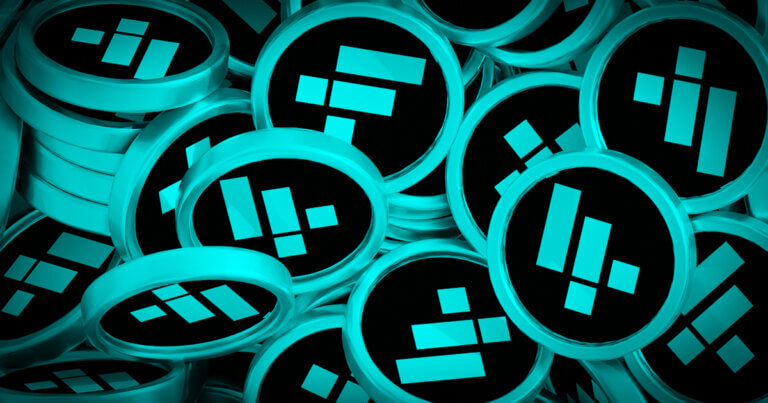On October 27th 2021, our community had a chance to welcome MR. GEORGE BURKE - CO-FOUNDER & CMO OF PORTAL to join an AMA to deliver fruitful information about the key features and roadmap of the project.
This AMA was held by CryptoFamily Group – the top crypto community in Vietnam, where investors and traders can obtain the latest news and signals from bot/ admins, as well as discuss and share investment experiences in the crypto space.
At this AMA, MR. GEORGE BURKE directly greeted the community and provided detailed information on PORTAL PROJECT as well as some exciting events that will be held in the near future.
Time: 22:30 PM (UTC+7) | Wednesday, October 27th, 2021
Venue: https://t.me/CryptoFamilyVN
Reward Pool: 200$ for members with the best questions.
Below are some main points of this AMA session:
PART I: INTRODUCTION OF PORTAL PROJECT
1. First, please introduce briefly about your team and some key features of Portal Finance.
MR. GEORGE BURKE: I'm very proud of the allstars I get a chance to work alongside every day:
- Eric Martindale, 10 years in Bitcoin, Head of Open Source at Blockstream and Engineering at BitPay, advisor to Lemniscap, and is the inventor of Fabric.
- Chandra Duggirala, Bitcoiner and M.D. turned entrepreneur, ran two 8-figure software businesses, and is the inventor of functional layer 2 cross-chain atomic swaps (he solved problems keeping Tier Nolan’s atomic swaps impractical until now).
- Alexey Melnichenko, 5 years architecting token & exchange design, engineer at Phantom Cyber (acquired by Splunk), designed the exchange engine at Totle.
- Manoj Duggirala, Led a 150-engineer team at Invensense, designed the Apple M7 co-processor in phones and watches, ex-IBM Almaden. Engineering at Stanford.
- George Burke, 8 years in bitcoin, 3 exits in peer-to-peer/community startups incl. early bitcoin exchange Crypto Street, created the first Bitcoin debit card, and runs the world’s oldest bitcoin meetup.
- Johnny Dilley, VP of Strategy & Product at Blockstream. Conceptualized Liquid sidechains. Early VC at Pantera. 8 years in Bitcoin.
- Jack Mills, Engineering Architect of Casper Labs / RChain, and previous Director of Enterprise Platforms at Intel. Engineering at Stanford.
Here's how we came together. Manoj, Chandra, and I had built previous 7-figure startups and wanted to solve problems in crypto. I knew the Fabric CEO Eric Martindale for many years as a friend in the bitcoin space. He was a bitcoin god. Early at a Blockstream and early at BitPay and was one of the few human beings to undestand Layer 2's and sidechains. Eric was first a mentor and advisor to our team. Johnny and Alexey worked with him at Fabric. Later they joined us to build Portal…
Our company, Portal -- https://portaldefi.com -- recently announced an ~$8.5M raise to give birth to DeFi built on Bitcoin. We believe financial applications should be built on the protocol that is most likely to become the base money layer. Portal makes DeFi unstoppable with anonymous, zero-knowledge swaps via the first true cross-chain DEX that’s genuinely trustless. Unlike Uniswap/others, Portal eliminates minting wrapped coins (ie wBTC, wETH) or risky staking with intermediaries. Trading across incompatible blockchains is now just 1-click, trustless and private. Fabric protocol, our layer 2 & 3 technology powering Portal, enables building censorship-resistant communications, media and one-click cross-chain swaps, all on Bitcoin (along with all its security advantages).
2. Next, please share with us the roadmap of Portal Finance in the coming time.
MR. GEORGE BURKE: Before roadmap, let's start with accomplishments so far: We invented zero-knowledge swaps, which fix the Layer 1 "Tier Nolan" atomic swap problems. In addition, our CEO invented the Fabric protocol (the protocol Portal uses to build p2p ZK circuits for Fully Homomorphic Encryption), and has been used to build peer-to-peer communications and decentralized other apps. With the atomic swaps integrated into Fabric, we are rebuilding the Web from client server model to an uncensorable, decentralized architecture.
As for roadmap, we can announce that in only a couple of weeks we are launching our public sale on one of the most prestigious launchpads in the world, Republic, and unlike most other high profile projects, we are allowing investors from the US. If you'd like to participate, you'll first need to be on the whitelist. We will also be announcing a number of partnerships with other tier 1 blockchain issuers over the coming weeks. On the regulatory front, we have been seeing SEC lawsuits to various token projects for raising on an unregistered security; potentially fraud. This can result in a fine of millions or send teams to jail. Any issuer who promises an investor tokens is irreparably tethering the network token to the fundraise and will forever make that token a security. We will see any tokens deemed securities to be banned from trading on non-brokerage exchanges (which is pretty much all of them). Our fundraise is specifically designed to preserve the non-security nature of a digital asset that runs on the decentralized network, and therefore is never sold, given away, airdropped, etc. This way it can always be as freely transferrable as BTC itself.
Last, with regard to roadmap, Portal is a completely community-driven development. The community will determine roadmap and features post-launch. We're excited to see where the community drives the project as they push the bitcoin interoperability ecosystem forward.
CF: Thank you for the details of your roadmap as well as some great achievements you have made during your progress
3. Could you please update some latest news or big events of Finance to draw more attention in the coming time?
MR. GEORGE BURKE: The more immediate goal is selling out the public sale at Republic mid-November. There will only be 1,900 investor slots available, first-come, first-serve. I don't think selling out same-day will be a problem, but still, for us, it's a monumentous day. If investors wish to participate, they'll need to register for the whitelist at https://go.portaldefi.com/whitelist.
CF: Sounds really nice! Guys feel free to register Portal IDO on Republic in Mid-Nov
That's the end of Part 1. I believe all the members here would love to hear more about the project, and they have many questions submitted on Twitter today. Now let's move to Part 2 with some good questions from Twitter that I have chosen carefully for you.
PART II: PRE-COLLECTED QUESTIONS FROM TWITTER
Q1. From @Lidiamga
The development of cross-chains is currently centralized in many platforms, so how will Portal consider this as the focus of the technological development of the platform? What benefits will this bring to users when they use it to exchange BTC for other tokens and vice versa?
MR. GEORGE BURKE: Here's a future application of zero-knowledge atomic swaps technology at scale: Imagine the ability to go anonymous with your payments on bitcoin. Coinjoin-like transaction obfuscation services, but much cheaper, quicker, and actually anonymous because it operates at layer 2 and layer 3 instead of several layer 1 burdensome transactions. Any coinjoin transaction is well-recognized by just looking at the wallet, and could be flagged. Instead, any layer 2/layer 3 obfuscation looks simply like a Lightning transaction despite maybe dozens of participants.
Several blockchains are looking for bridges to swap between their token and bitcoin, but these don't trustlessly exist (yet). We have a few blockchains wanting integration for near trustless swapping and bonding between their token and bitcoin (or other tokens of incompatible blockchains). This interoperability is the holy grail of the crypto space. One partner we can name is Aeternity, another about to be named on Monday, and we will continue name the other partners over time.
Something cool that Fabric's tech and Portal's non-custodial atomic swaps wallet will enable is the ability to make a payment in one asset but the receiver receives a different asset, where it was automatically swapped in the same send transaction. Imagine only holding Chainlink but wanting to send someone Solana. Or only holding DOT and wanting to send someone BTC. Portal will enable this in the future. Can't wait.
Q2. From @tracy90363549 Liquidity mining is the best way to generate passive income. Liquidity funds are very important for decentralized exchanges and this is exactly one of the key advantages that you will have with Position. What passive income strategies does Position Exchange offer to users?
MR. GEORGE BURKE: All facilitators get paid based on the value of trades they facilitate. Our revenue is tied to the growth of the network and userbase. Every wallet downloaded can be configured to run a facilitation node. The whitepaper goes into revenue for Portal and revenue for facilitators more extensively. Please see the whitepaper at https://go.portaldefi.com/whitepaper
Q3. From @Alex_Roseq I understood that Portal DeFi will merge the speed and security of centralized exchanges and the privacy and security of underlying blockchains to authorise seamless peer-to-peer atomic cross-chain transactions? Can you explain how and what features will help you achieve this?
MR. GEORGE BURKE: ...For some background, a layer 2 is a sequence of unsettled transations on the main chain done for a purpose. For example, Lightning Network is a layer 2 system for peer-to-peer micropayments. However, lightning transactions -- until settled -- are not broadcasted to the main chain. We invented layer 2 zero knowledge swaps, which fix the Layer 1 tier nolan atomic swap incentive problems, and add speed and liquidity features. In addition, Fabric protocol (the protocol we use to build p2p ZK circuits for FHE) -- https://fabric.pub (https://fabric.pub/) -- has been iused to build peer to peer communication and other apps. Just like lightning is a layer 2 system for peer to peer micropayments, and is therefore fast because lightning transactions, until settled, are not broadcasted to the main chain. Portal is a layer two system for peer to peer cross-chain contracting. Because it's layer 2, it's fast.
Portal is building a true cross-chain method of trust-minimized exchange without a 3rd party. But because these chains do not natively interoperate or communicate with another, a layer must be built above the base layer for such communication. Portal is a layer 2 system for peer-to-peer cross-chain contracting. Cross-chain contracting facilitates a variety of in-demand DeFi activities, like spot-trading.
Fabric, the underlying technology Portal is built on, splits contracts into "ZK Swarms" — allowing all network participants to agree to contracts on their own terms. These are "multi party contracts", with each peer earning Bitcoin for computing their part in the program. It does this at "layer 3", which provides the privacy PLUS fungibility of transactions.
But why zero-knowledge? Why privacy? How can a decentralized exchange layer be truly censorship-resistant if traders are known and addresses can be traced? So, Fabric technology enables ZK circuit creation which, when implemented, opens the door to a whole host of new methods of obfuscating transactions without losing verifiability.
For Bitcoin to become money, we need a censorship resistant, peer-to-peer trading system that crosses blockchains.
CF: What a practical and convincing explanation! Can't wait to dive into the next question.
Q4. From @GamaLidi After learning the whole development process, economic model and ecological condition of PORTAL I believe that many friends are very interested in PORTAL’s future development direction & path. Could you tell us the short-term & long-term planning of PORTAL in detail?
MR. GEORGE BURKE: I'd first like to refer to a previous answer about roadmap https://t.me/CryptoFamilyVN/2139113. But something I forgot to mention earlier in our roadmap is the product is not just the cross-chain atomic swaps DEX, but also a non-custodial multi-coin "trading wallet". The software is in private alpha and allows users to trade on centralized exchanges such as Binance, Coinbase, and even DEXs like UniSwap in 1-click, right from within the wallet. It helps find the path of best execution (exchange with the best price and liquidity), sends your coins to the exchange from your wallet, executes the order, and withdraws back to the safety of your Portal wallet right after execution... all this in just 1 click. This is a huge draw to adoption. Why? Because once atomic swaps goes live, the wallet can choose Portal as the best path of execution. For users of the wallet, instant adoption. Oh and it's the only app in the Apple App Store approved for atomic swaps.
CF: Appreciate the fruitful information you have provided. Sounds really interesting. And the last question from Twitter, which also concludes part 2 of today's AMA.
5. From @Linh_trang1805
Do you agree that the community power will lead to further success of a blockchain project? Could you also please highlight more on the decentralization aspects using your technology? How is your marketing, game and blockchain mechanics different ?
MR. GEORGE BURKE: The Portal network WILL BE decentralized, but first is being built by our core team, and soon become open source prior to network launch. Fabric protocol is already open source and anyone can contribute. We welcome you to join us. Check it out: https://github.com/FabricLabs. With regard to roadmap, Portal AND Fabric will be both completely community-driven development. The community will determine roadmap and features post-launch. We're excited to see where the community drives the project as they push the bitcoin interoperability ecosystem forward. We just created a new ambassador program. You'll need to email marketing@getportal.co and we'll send you the details.
CF: The great answer from @geoburke has concluded Part 2. Let's move to the free-asking part, all members will have 2 minutes to make questions for our Guest today. Feel free to ask and he will explain gradually in his answers.
After 2 minute, chat has been muted again. Thanks our community for joining us enthusiastically We've got overloaded questions from our vibrant community. Now Guest will choose 5 best questions to give the answers. Take your time, please!
PART III: BEST LIVE QUESTIONS IN CRYPTOFAMILY GROUP
1. On which DEX platforms can I buy your token and are you planning to list on new exchanges?
MR. GEORGE BURKE: We cannot discuss tokens or token price. Why? On the regulatory front, we have been seeing SEC lawsuits to various token projects for raising on an unregistered security; potentially fraud. This can be as little as a fine of millions or as bad as going to jail. Any issuer who promises an investor tokens is irrepairably tethering the network token to the fundraise and will forever make that token a security. We will see any tokens deemed securities to be banned from trading on non-brokerage exchanges (which is pretty much all of them). Instead, Portal's fundraise -- happening IN A FEW WEEKS through a compliant securities offering on the best lauchpad in the world, Republic -- is specifically designed to preserve the non-security nature of a digital asset that runs on the decentralized network, and therefore is never sold, given away, airdropped, etc. This way it can always be as freely transferrable as BTC itself. We are also under embargo from discussing anything about exchange listings. All I am allowed to say is that there are a number of top exchanges who invested in Portal, including OKEx and Coinbase. We're excited to have close relationships with them and that they believe in Portal. Take that for what it's worth.
For more info on this, see the writeup we did on this compliant fundraise model here: https://blog.portaldefi.com/no-ico. Compound and Chia used a similar mechanism.
2. Portal aspires to build a ground-breaking layer 2 peer-to-peer network for non-custodial trade, but how safe can this network be? Could you clarify how users may rest assured that their payments will always be safe when they use this P2P feature?
MR. GEORGE BURKE: 1) Building a secure layer 1 system is incredibly hard. We don't want to do that; Fabric uses the layer 1 system that already exists and therefore we use Bitcoin as OUR layer 1. In Portal, the contracts don't depend on anything other than Bitcoin's and Ethereum's securities. We are harnessing the security of Bitcoin and ETH, the atomic swap contracts are minimal. Independently audited and tested to the max by a truly decentralized network before going live over the course of the past 5 years.
Unlike wrappers and bridges, these coins are not re-bonded into Portal and are not honeypots. The community treasury does not contain exposed user's funds. The exposure is limited only to the token which is being traded -- NOT what is bonded. This is the main difference between the Portal project and other so-called false "cross-chain DEX" projects. The flaw in bonding/wrapping is double the exposure for a breach in security; be it theft, risk, hacking. It's like making a duplicate -or a triplicate- of your house key. The Portal project is designed to protect your key- the reliance on simple and native atomic swaps means there isn't anything to expose. This is possible through the use of Fabric Protocol technology, which is an internet built on the layer 1 blockchain of bitcoin - the timechain itself.
2) Bitcoin provides the security; no need to implement a new system and attempt to garner superior adoption. Bitcoin is the most decentralized and secure system and we think it is the monetary layer. If you want to build functionality, financial contracts, and beyond, it makes sense to build it on top of the monetary layer vs any other layer. More importantly, layers of functionality enable bitcoin to capture the value, but not the risk of a failure of a layer 2 system.
3. Your project name seems to be very interesting. Does it have any story behind it? Can you share us with the inspiron for approaching to this name?
MR. GEORGE BURKE: The name Portal stems from our plan to be THE GATEWAY to decentralized finance. The motive behind Portal is expression of self-sovereignty. Portal is to cryptotrading what Tor is to p2p communication. Portal is an unstoppable p2p exchange. Our team started in 2018 by building a self-sovereign multi-currency wallet that allows people to trade at many centralized exchanges right from within the wallet interface, but quickly noticed that the biggest point of failure for the entire crypto ecosystem exists at the layer of exchange. So between 2019 through to today, we've been concentrating on making trading coins as trustless as can be and decided to focus on making cross-chain atomic swaps usable, practical, and fast. Portal, at the layer of trade, will free up so much potential within the ecosystem. For Bitcoin to become money, we need a censorship resistant, peer to peer trading system that crosses blockchains. That's why we are building DeFi using cross chain atomic swaps. BItcoin is strengthened by building many layers of functionality.
4. Staking, NFT is very hottest, do you think you will apply NFT technology to your products in the achieved future?
MR. GEORGE BURKE: Yes, NFTs are hot. I already see incompatible siloes being problematic because an NFT on one chain cannot be accessed through smart contracts on another chain. Since Portal is all about cross-chain, trustless interoperability, I can see a future where we may be able to bridge the gaps between siloed NFT platforms. I also see a future where a single NFT can be bonded with several FUNGIBLE tokens being minted for fractionated ownership. Fabric's technology would enable Portal to build both of these awesome NFT-features... HOWEVER, our roadmap is community driven and they will be the ones to direct the development team down that path. We shall see!
5. Good day sir. Most of the new investors, only focus on the price of the token, and the short term benefits of the project rather than understanding the true value of the project. Can you tell us about the motivations and benefits for investors to hold your tokens long term?
MR. GEORGE BURKE: Convincing investors to invest is not our primary objective. Obviously it is a great side effect of our efforts, however we are not in the business of soliciting investors. We are more concerned with developing a product that the community trusts, uses, and, most importantly, embraces. Portal the network doesn't depend on us, and is not controlled by us - the ultimate security. You want p2p systems to be secure against any 1 point of failure. The participants in the Portal network make or break the system- not us. Once it is live, because the community is the wind in the sales, the decentralized community has complete authority over the network. Our roadmap is community driven and they will be the ones to direct the development team down that path. I'm excited to see what you -- Portal's community -- wants to be built!
Thanks for chatting with me about PortalDeFi.com and building many layers of financial infrastructure onto Bitcoin.
CF: Thank you so much for taking your time to join our AMA today, as well as thanks for hundreds of good questions from our community.
Seems like there're many things to exchange, but I'm afraid the time is up now. For all of the questions that have not been answered yet, guys feel free to search for more information on the links provided below:
Telegram: https://t.me/portalgroupchat
Twitter: https://twitter.com/portal_finance
Portal Finance Announcements: https://t.me/getportal
Whitelist: https://go.portaldefi.com/whitelist-giveaway-ama
